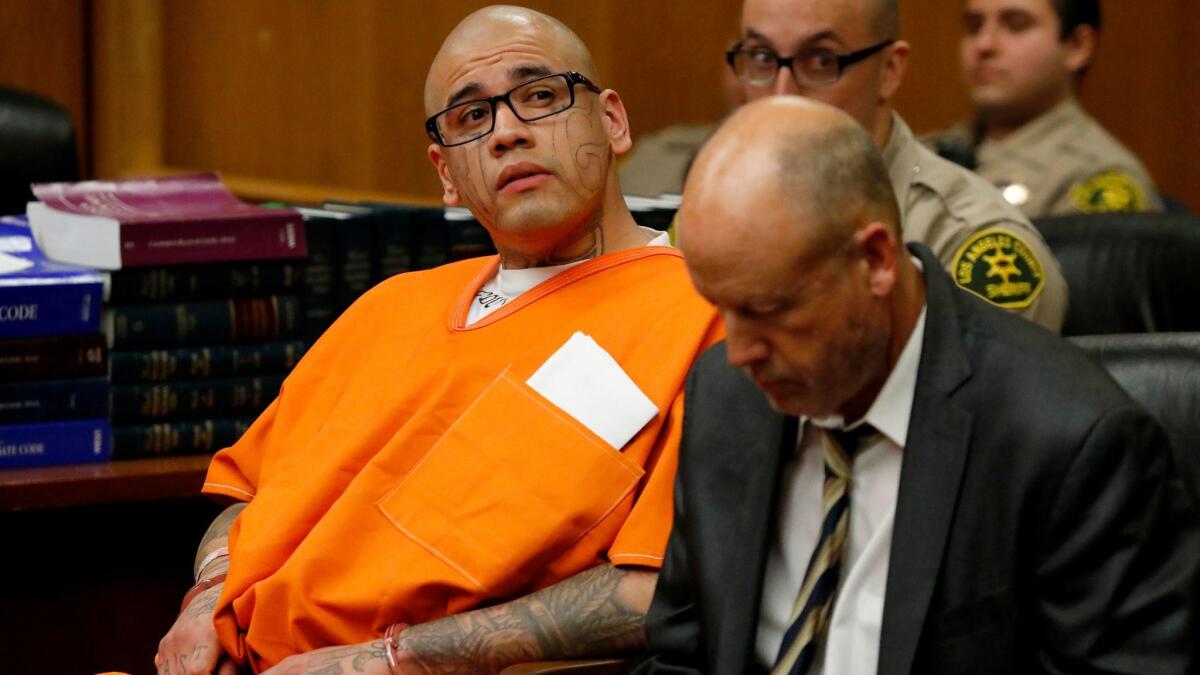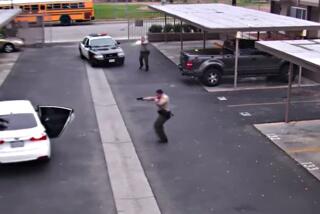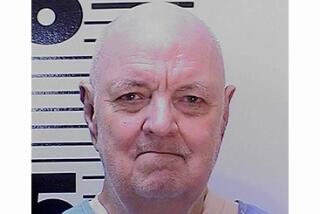Prosecutors will seek death penalty for gang member accused of killing Whittier cop

Prosecutors will seek the death penalty against an admitted gang member accused of killing his cousin before fatally shooting one Whittier police officer and wounding another, the Los Angeles County district attorney’s office announced Friday.
Michael C. Mejia, 27, a convicted felon with a history of drug possession and violent criminal activity, is accused of killing his cousin, Roy Torres, in East Los Angeles last February before fleeing with Torres’ car and crashing into two other vehicles at a Whittier intersection.
When police Officers Keith Boyer, 53, and Patrick Hazell arrived at the scene of the accident and ordered Mejia out of his car, he opened fire on them, prosecutors said.
Mejia killed Boyer and wounded Hazell, authorities said. Mejia was wounded during the gun battle.
He was charged with two counts of murder and one count each of attempted murder, carjacking and possession of a firearm by a felon, authorities said. He also faces special circumstance allegations of multiple murders, the murder of a police officer and murder to escape arrest, making him eligible for the death penalty.
Mejia is being held without bail and was ordered to return to court April 6 for a pretrial hearing.
After the shooting, Mejia was taken to a hospital and initially booked for violating probation. At the time of the killings, he was under the supervision of the L.A. County Probation Department. Mejia had been jailed and released for violating probation five times since the summer of 2016.
Mejia had previously served a prison sentence for grand theft auto and earlier had been sentenced to four years in prison for robbery and gang membership.
The Feb. 20 slayings came just over a week after he finished his latest jail stint. Sheriff’s homicide investigators said that while on probation Mejia repeatedly served short jail sentences for violations including possessing narcotics and fleeing police officers.
Some critics blame criminal justice reform legislation, particularly Assembly Bill 109, for putting Mejia back on the street.
In response to prison overcrowding, Gov. Jerry Brown in 2011 spearheaded AB 109, which shifted many inmates from state prisons to county jails. The measure also allowed some inmates to serve a “split sentence,” with part of the time on probation instead of behind bars.
State corrections officials have said that AB 109 played no role in Mejia’s release and that he served his full prison terms.
Two L.A. County supervisors have launched an investigation into the probation department’s handling of Mejia and why his probation had not been revoked. The shooting was cited repeatedly as a reason to create a blue-ribbon commission to study the impact of state criminal justice reforms in the county.
Times staff writer Richard Winton contributed to this report.
For more California news follow me on Twitter: @sarahparvini
More to Read
Start your day right
Sign up for Essential California for news, features and recommendations from the L.A. Times and beyond in your inbox six days a week.
You may occasionally receive promotional content from the Los Angeles Times.







